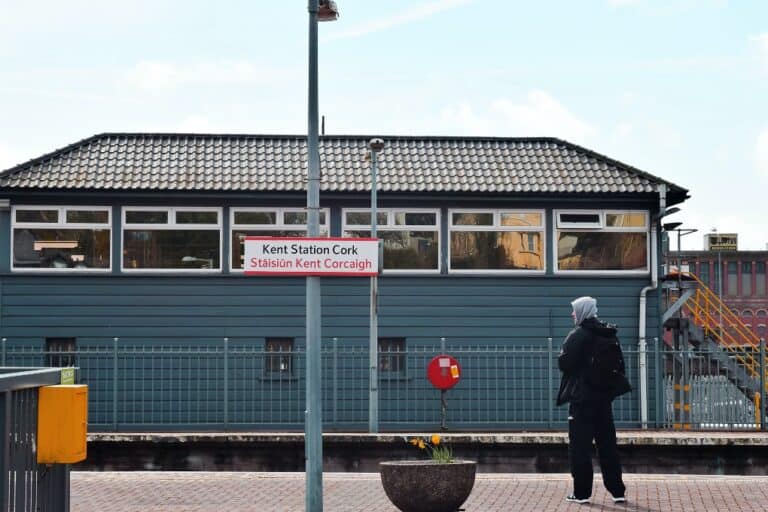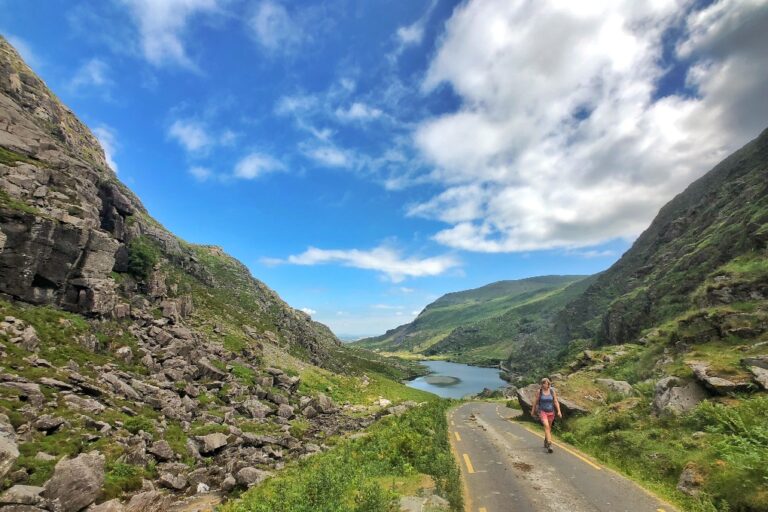Is Dublin Walkable? Guide to Getting Around the City (2025)

With its rich history, vibrant culture, and charming streets, Dublin has long captured travelers’ hearts. But as you plan your visit to this Irish gem, you might wonder: Is Dublin walkable? In this post, we’ll delve into the important information about exploring Dublin on foot, uncovering the city’s walkable gems, and providing insights into when to lace up your walking shoes and when other modes of transportation might be more suitable.
Is Dublin Walkable?
Yes, Dublin is very walkable, especially in and around the city center. The city’s compact size and well-designed layout make it a pedestrian-friendly destination. Many of Dublin’s top attractions, including Trinity College, Temple Bar, and Grafton Street, are within comfortable walking distance of each other. Plus, strolling along its historic streets allows you to soak up the vibrant atmosphere, uncover hidden gems, and appreciate the city’s rich history.

Is Dublin the Most Walkable City?
While Dublin is certainly walkable and offers a charming pedestrian experience, it may not be considered the most walkable city globally. Cities like Paris, New York City, and Barcelona often rank among the most walkable due to their extensive networks of sidewalks, pedestrian zones, and compact layouts that encourage exploration on foot.
Is It Easy to Walk Around Dublin?
Yes, walking around Dublin is generally easy and enjoyable. The city’s compact size and well-laid-out streets make navigation straightforward. Most of the major attractions, shops, restaurants, and entertainment venues are within comfortable walking distance of each other, particularly in the city center. In fact, there are really only two or three main roads in the city center that hold most of the main attractions, which makes walking directions quite simple.
The sidewalks are well-maintained, and pedestrian crossings are plentiful in Dublin. The only possible challenge in walking around Dublin is for someone like me, who comes from the USA, a country where cars do NOT drive on the left side of the road, to remember to check the opposite way than I’m used to for oncoming traffic!

Is It Safe to Walk in Dublin?
Yes, walking in Dublin is generally safe. The city is known for its friendly and welcoming atmosphere, and its streets are well-lit, well-maintained, and well-patrolled. As with any travel, it’s advisable to keep an eye on your belongings, be cautious at night, and use designated pedestrian crossings.
Want tips about safety in Dublin? Read more!
Do I Need a Car to Get Around Dublin?
No, a car is not necessary to get around Dublin, and in fact, it’s not recommended to drive around Dublin. Parking is limited and traffic can become congested quickly.
It’s not hard to get around Dublin, the city boasts an extensive and efficient public transportation system, including buses, trams, and trains, that can take you to major attractions and neighborhoods. Dublin’s compact layout also makes it quite walkable, especially within the city center where many key sites are located.

If you plan to explore areas outside the city, like the countryside or nearby attractions, renting a car might be beneficial and even necessary. However, for navigating within Dublin itself, public transportation and walking are generally convenient and practical options.
Renting a Car in Ireland?
My go-to car rental service in Ireland is Discover Cars. They compare prices across the leading car rental services to find you the lowest prices and best deals.
How Do Tourists Get Around Dublin?
Tourists in Dublin have a variety of convenient transportation options at their disposal:
- Public Transportation: Dublin offers an extensive public transportation network, including buses, trams (Luas), and trains (DART), which efficiently connect various parts of the city and its suburbs.
- Walking: Dublin is very walkable, especially in the city center where many attractions are within a short distance of each other.
- Biking: Dublinbikes bike-sharing provides an eco-friendly and efficient way to move around the city, with designated bike lanes and cycling routes. The first 30 minutes of each journey are always free!
- Taxis and Ride-Sharing: Taxis are readily available and can be hailed on the street or booked in advance.
- Hop-On Hop-Off Buses: Tourist-friendly hop-on hop-off buses offer narrated tours of the city’s main attractions, allowing visitors to explore at their own pace.
- Tours: Guided tours, whether on foot, by bus, or by boat, offer curated experiences of Dublin’s landmarks and attractions, often including historical and cultural insights.
These transportation options provide tourists with the flexibility to choose the mode that best suits their preferences and travel plans.
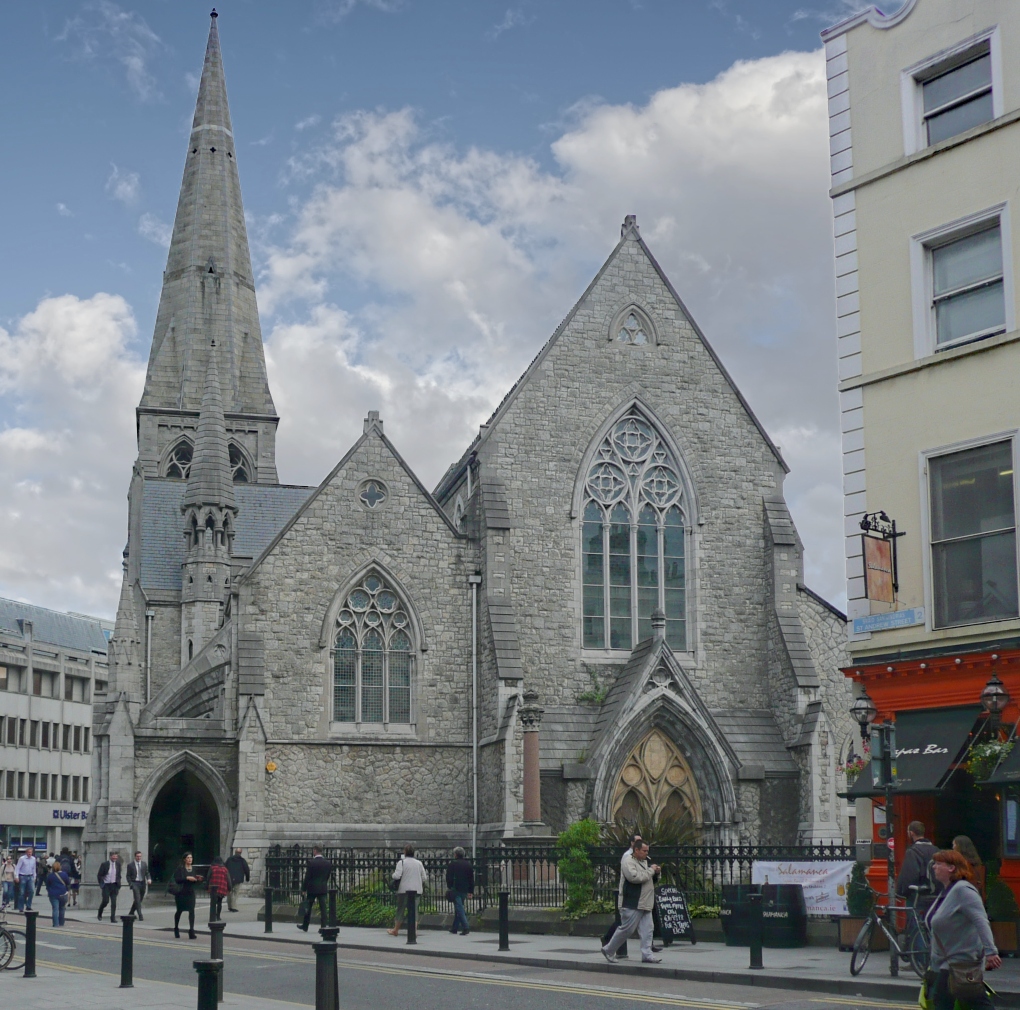
Getting Around Dublin on Foot
Getting around Dublin on foot is not only enjoyable but also one of the best ways to truly experience the city’s charm. Here are some tips to make your walking experience smooth and rewarding:
- Comfortable Shoes: Wear comfortable and sturdy shoes, as you’ll likely be covering a lot of ground on different surfaces, from cobblestone streets (especially tough in heels!) to paved sidewalks. Dublin will often have bursts of rain, so closed-toe and ideally, water-proof shoes are recommended.
- Stay in the City Center: Dublin’s city center is compact and easily navigable on foot. Many of the main attractions, like Trinity College, Temple Bar, and St. Stephen’s Green, are within a short walking distance of each other. Finding accommodation in the city center makes walking around Dublin much easier.
- Weather Preparedness: Dublin weather can be unpredictable, so carry an umbrella or raincoat and dress in layers to stay comfortable in changing conditions.
- Local Maps and Apps: Carry a local map or use navigation apps to help you navigate and discover hidden gems. If you won’t have internet service while abroad, you can download Google Maps on WiFi to use offline.
- Safety Awareness: Dublin is a safe city, but it’s always wise to be cautious, especially in crowded areas or at night. Keep an eye on your belongings and avoid displaying valuable items.
- Rest Stops: Take advantage of Dublin’s parks, squares, and cozy cafes for rest breaks and people-watching.
- Guided Walking Tours: Joining a guided walking tour can provide you with historical insights and local anecdotes, enhancing your overall experience. Many hostels and hotels provide free city walking tours during your stay.
- Street Entertainment: Dublin’s streets often feature musicians, artists, and performers – take a moment to enjoy their talents and contribute to the vibrant atmosphere.
 Where to Stay in Dublin to Easily Walk Everywhere
Where to Stay in Dublin to Easily Walk Everywhere 
High-End: Anantara The Marker Dublin  9.4/10
9.4/10
Nestled in Dublin’s chic Docklands district, The Marker is a trendy establishment that overlooks Grand Canal Square. Featuring an ultra-modern checkered façade, the hotel’s interior showcases designer furnishings and vibrant colors. Offering luxury amenities like a full-service spa, infinity pool, onsite bar, and incredible restaurants, The Marker guarantees a relaxing escape in Dublin.
With a more contemporary flair, The Marker Hotel boasts a trendy Rooftop Lounge to savor drinks against the backdrop of Dublin’s cityscape. Elevate your experience by indulging in a spa day, culminating in a delectable dinner at The Brasserie, a venue renowned for showcasing Ireland’s finest locally sourced ingredients. Best of all, the Marker is located within quick walking distance of Dublin’s city center.
Mid-Range: Marlin Hotel Stephens Green  8.4/10
8.4/10
Nestled in the heart of Dublin, the Marlin Hotel is a stylish urban retreat that seamlessly combines modern elegance with comfort. Its strategic location allows guests to immerse themselves in the vibrant cityscape, with key attractions like Trinity College and Temple Bar within walking distance.
The hotel’s contemporary design, complemented by thoughtfully curated furnishings, creates a welcoming ambiance. Guests can unwind in comfortable rooms, and the onsite restaurant promises a culinary journey through locally inspired flavors. With attentive service, easy access to Dublin’s attractions, and an affordable price point, the Marlin Hotel offers an inviting haven for travelers seeking both relaxation and exploration.
Getting Around Dublin by Public Transportation
Navigating Dublin by walking and using public transportation can be efficient and cost-effective. There are three main types of public transportation in Dublin:
- Dublin Bus and Bus Eireann: An extensive bus network covers the city and its suburbs, connecting major attractions, neighborhoods, and transportation hubs. Some private bus operators run buses in the city as well.
- Luas: The Luas is Dublin’s light rail/tram system with two lines: the Green Line and the Red Line. It provides quick connections between the city center and outer areas.
- DART: The Dublin Area Rapid Transit (DART) is a coastal train service that runs along the scenic coastline, offering connections to seaside towns and suburbs. There are also Commuter trains that serve suburbs in the north, west, and south of the city.
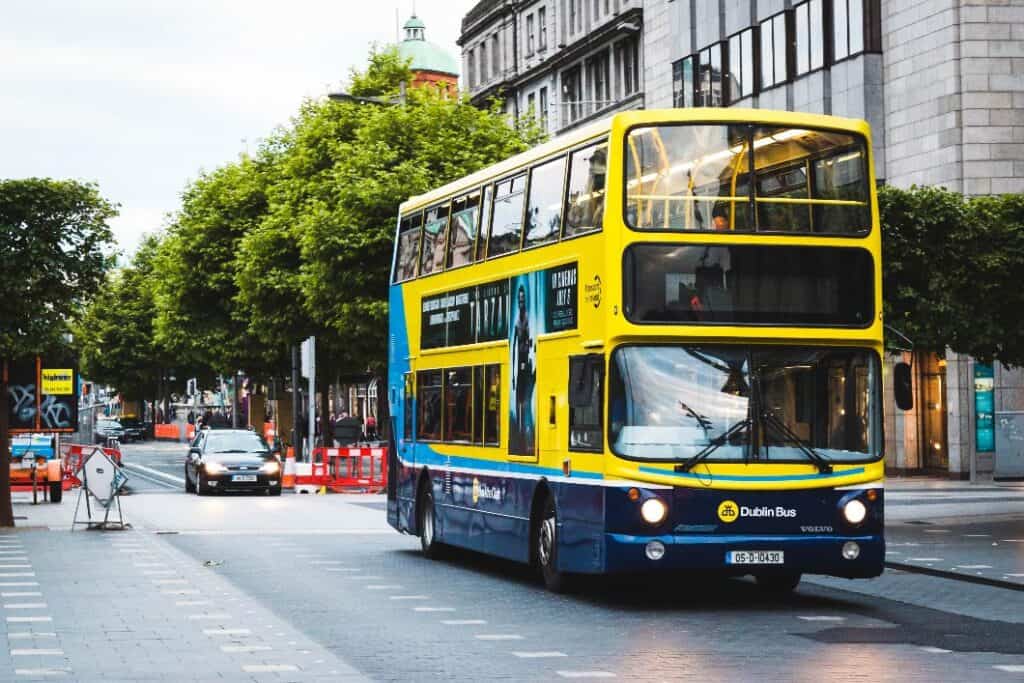
Here are some valuable tips to help you make the most of the city’s transportation network:
- Leap Card: Purchase a Leap Card, a convenient smart card that offers discounted fares on buses, trams, and trains. It’s a practical and affordable way to pay for your rides if you plan to use public transportation.
- Route Planning: Plan your routes using online journey planners or apps to find the quickest and most convenient ways to reach your destinations.
- Peak and Off-Peak Times: Fares may vary during peak hours, so if flexibility allows, consider traveling during off-peak times for cost savings.
- Accessibility: Dublin’s public transportation system is becoming increasingly accessible, with low-floor buses and accessible tram stops. Check for services that cater to your needs.
Does Dublin Have a Subway?
No, Dublin does not have a subway system. The city relies on other forms of public transportation, such as buses, trams (Luas), and trains (DART), to provide efficient connectivity.
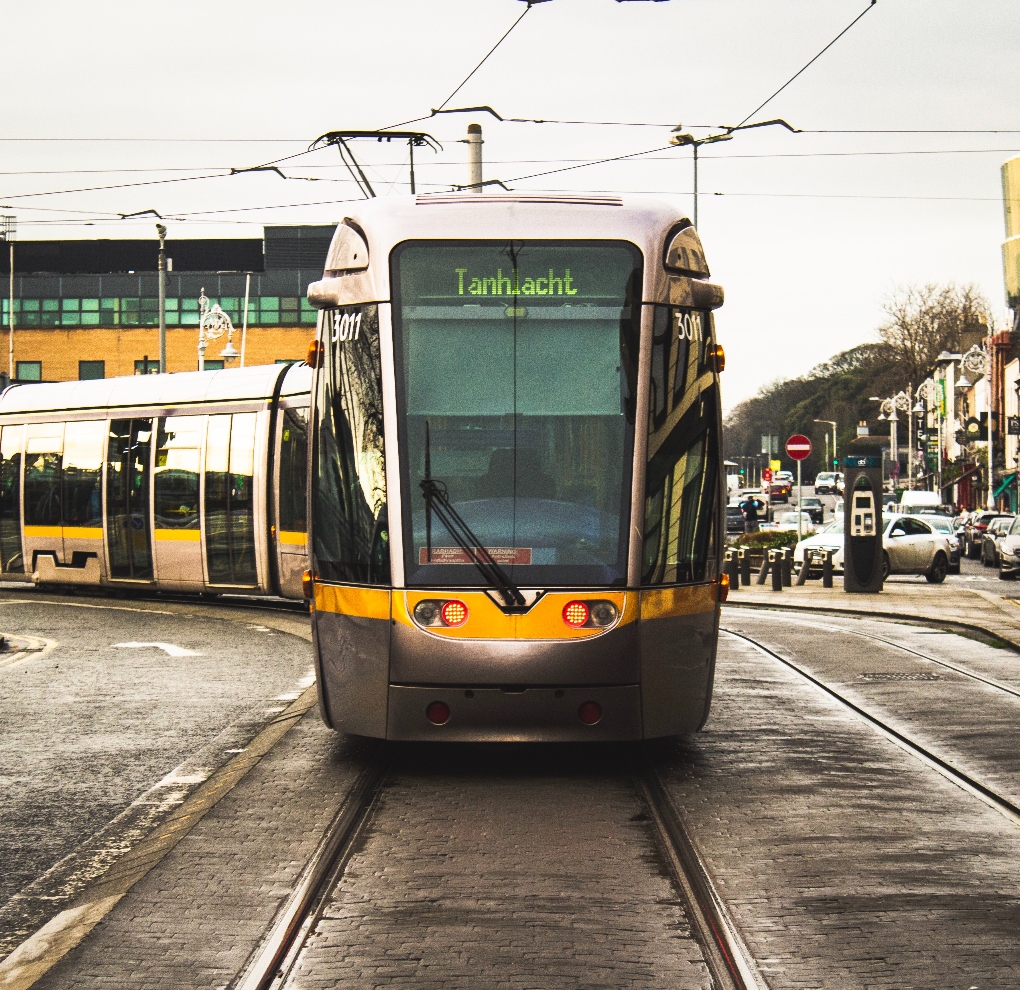
Do You Need Cash for Buses in Dublin?
You can pay for tickets on Dublin buses using either cash or a ‘Leap Card.’ It’s important to note that when paying with cash, you should provide the exact fare as no change is provided on buses. Alternatively, a ‘Leap Card’ offers a convenient and cost-effective way to pay for your bus fare.


OR
Are There Ubers in Dublin?
Technically, yes, the Uber app exists in Ireland but it’s not the same as standard Uber. Ireland has prohibited Uber from hiring private cars and only allows licensed taxi and limousine drivers to operate. So, when you order a car from Uber you will simply be hiring a taxi pick-up. You can still always hail a taxi on the street or have your hotel call a taxi for you as well.
Need more information on taxis and scheduling rides in Dublin?
>>> READ MORE: Is There Uber in Ireland? A Guide to Getting Around Ireland
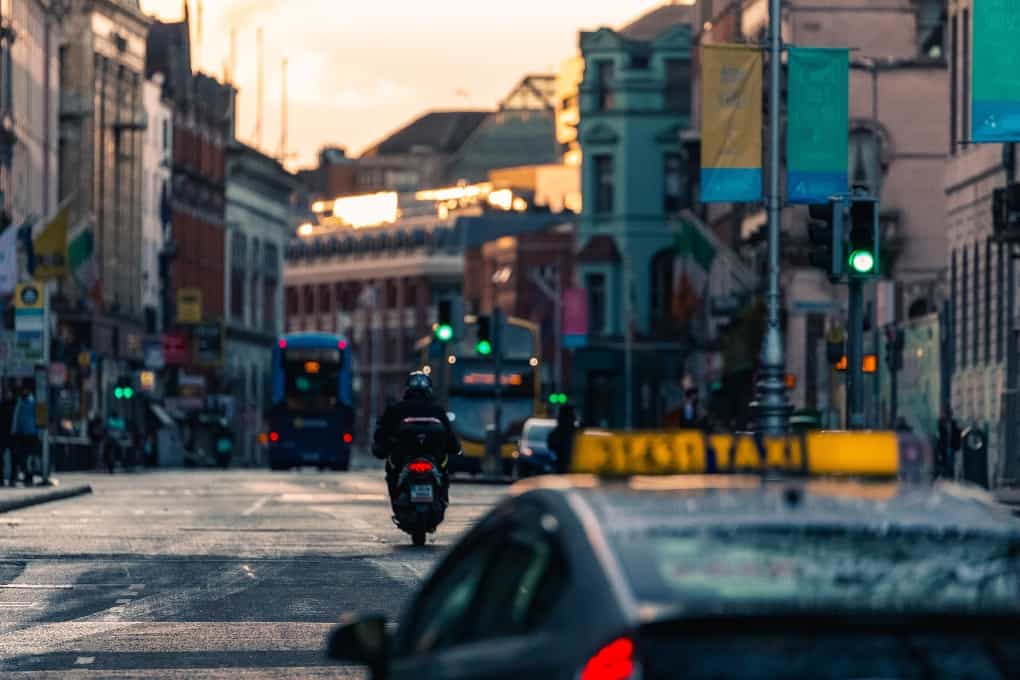
Can You Tour Ireland Without Renting a Car?
Yes, touring Ireland without renting a car is entirely possible. The country’s efficient public transportation system, including trains and buses, allows you to navigate between major cities and key attractions.
Additionally, guided tours offer a hassle-free way to explore Ireland’s stunning landscapes and cultural sites. In urban centers like Dublin and Belfast, you’ll find well-developed public transport networks, and for more rural areas, various tour operators provide transportation to popular destinations.

Half-Day Tours From Dublin
Is the Guinness Storehouse Tour Worth It?
Top 15 Best Dublin to the Cliffs of Moher Tours
Top 5 Best Ring of Kerry Tours
Gap of Dunloe Tours and Information

What Are the Benefits of Renting a Car in Ireland?
Renting a car in Ireland can offer several advantages, depending on your travel preferences and itinerary:
- Flexibility and Independence: Having a car gives you the freedom to explore at your own pace, allowing you to visit off-the-beaten-path destinations and adjust your schedule as you wish.
- Rural Exploration: If you plan to venture into rural or less accessible areas, a car provides the convenience of reaching scenic landscapes, historic sites, and charming villages that might not be well-served by public transportation.
- Convenience: Car rentals provide a hassle-free way to transport luggage and equipment, making it easier to move between accommodations and attractions.
- Customized Itinerary: Renting a car enables you to design a personalized itinerary, spending more time in places that interest you and less time adhering to public transport schedules.
- Scenic Drives: Ireland is renowned for its stunning scenic drives, and having a car allows you to fully enjoy routes like the Wild Atlantic Way or the Ring of Kerry.
- Group Travel: For larger groups or families, a car can be a cost-effective mode of transport compared to purchasing multiple individual tickets for public transportation.
Is Driving in Ireland Difficult for U.S. Citizens?
Driving in Ireland can be challenging for US citizens, primarily due to the adjustment of driving on the left side of the road and navigating roundabouts. Narrow rural roads, manual transmissions, and parking complexities can add to the difficulty.
However, with careful planning, familiarity with local driving rules, and practicing extra caution, many US visitors successfully navigate Irish roads. Consider your comfort level and driving experience before deciding to rent a car, and be prepared for a unique driving adventure in this picturesque country.
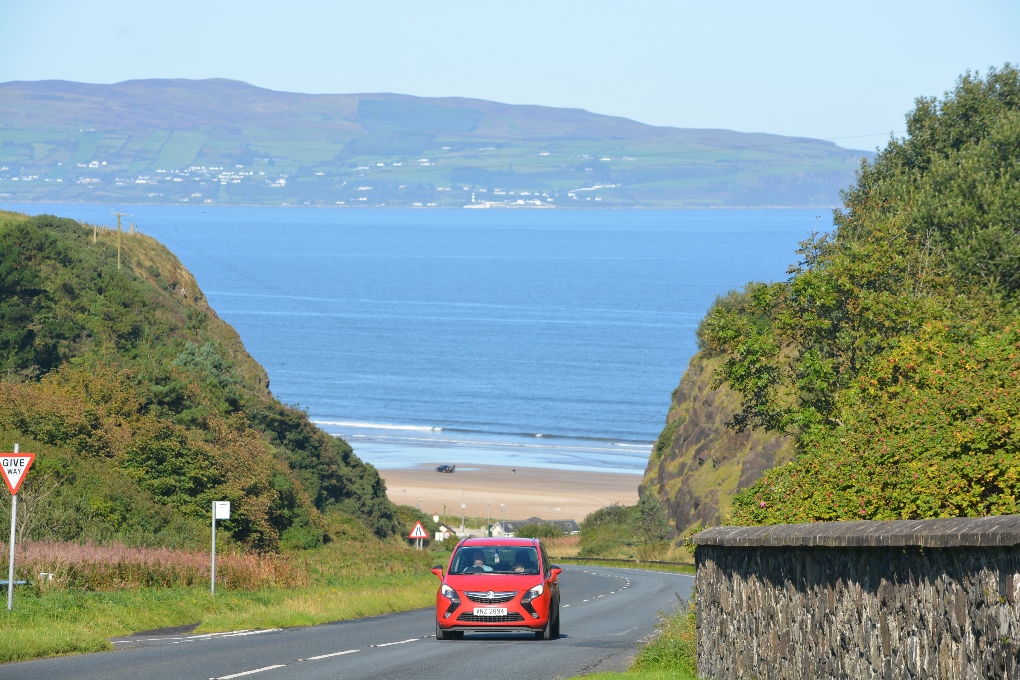
Is a U.S. Driver’s License Valid in Ireland?
Yes, a U.S. driver’s license is valid in Ireland for a visit of up to 12 months as a tourist and does not need to hold an international driving permit.
>>> READ MORE: Driving in Ireland: 11 Tips and Rules For Tourists
If you decide to rent a car, I recommend using Discover Cars to rent a car in Ireland. They compare prices across the leading Irish car rental companies to find you the BEST deals and LOWEST prices.

Discover Cars saves you money on renting a car, is easy to use, and most importantly – allows you to explore ALL that Ireland has to offer so you have the most memorable trip!

FAQs on Dublin
 How Many Days in Dublin Is Enough?
How Many Days in Dublin Is Enough? Spending 3-4 days in Dublin is typically sufficient to explore its major attractions, historic sites, and lively neighborhoods. This timeframe allows you to experience the city’s cultural richness, indulge in its vibrant culinary scene, and even take day trips to nearby destinations.
 What Is the Best Month to Visit Dublin, Ireland?
What Is the Best Month to Visit Dublin, Ireland? The best months to visit Dublin are May, June, and September. These months offer mild weather, longer daylight hours, and fewer crowds than peak summer, allowing you to enjoy the city’s attractions, events, and outdoor activities comfortably while experiencing its unique charm.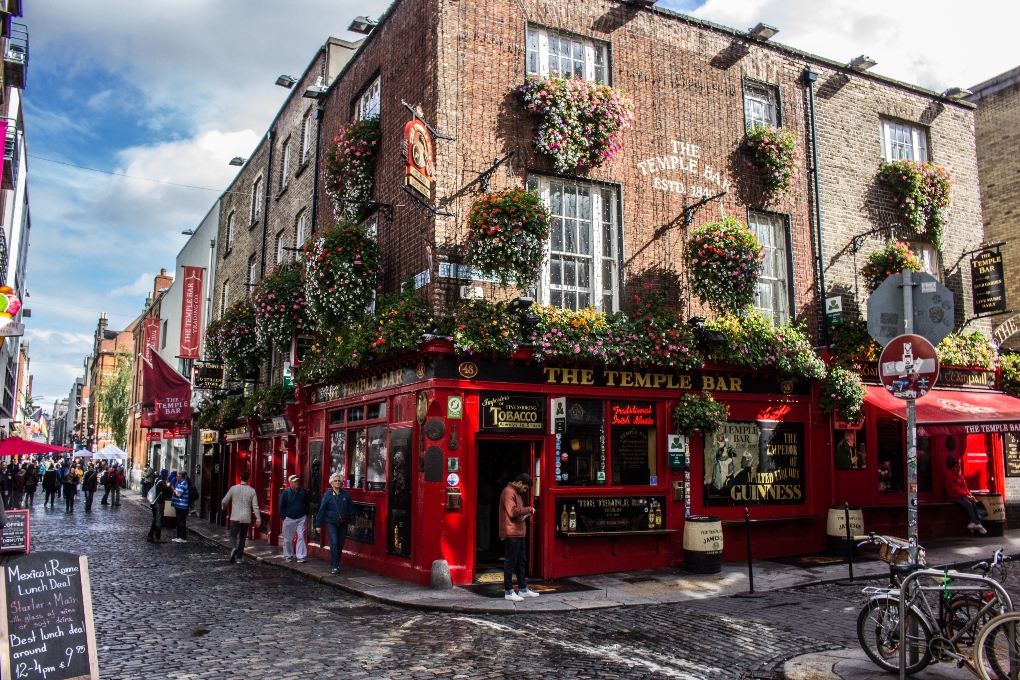
 Is Dublin a Friendly City?
Is Dublin a Friendly City? Yes, Dublin is known for its friendly and welcoming atmosphere. The locals, “Dubliners,” are renowned for their warm hospitality, making visitors feel at home.
 How Far Is It From Dublin to the Cliffs of Moher?
How Far Is It From Dublin to the Cliffs of Moher? The distance from Dublin to the Cliffs of Moher is approximately 280km (174mi) in a straight line. The driving distance takes approximately 3.5 to 4 hours by car, depending on traffic and route. A tour to the Cliffs of Moher from Dublin will take all day, around 12 hours.
CONCLUSION: So, Is Dublin a Walkable City?
Absolutely, Dublin is undeniably a walkable city. Its compact layout and pedestrian-friendly streets make exploring its rich cultural heritage, bustling markets, historic sites, and vibrant neighborhoods a delight on foot.
While public transportation is available, the city’s manageable size allows you to comfortably navigate many attractions by walking. So, whether you’re sauntering along the River Liffey or strolling through Temple Bar’s cobbled lanes, Dublin invites you to experience its charm and character at your own pace, making it a truly walkable and memorable destination.
Related Posts:
A Guide to Getting Around Cork
Visiting the Ring of Kerry Without a Car
Is Dublin Expensive?


1. Scott’s Cheap Flights – FREE flight deals alert, works best if you can be flexible
2. Skyscanner – FREE search engine, great for budget flights + deal
No, it’s not.
However, it’s always recommended to have travel insurance any time you travel in case of injury, accident, lost luggage, missed flight, etc. The best and most affordable travel/expat insurance is Safety Wing.
>>>CLICK HERE FOR INFO
Summer (June-August) – is the warmest and rains the least but you will have the most crowds.
Spring (March-May) or Fall (September-November) – are cooler and have more rain but you will beat the crowds and see some incredible wildflowers (spring)/greenery (fall).
Hotels, hostels, vacation rentals, and house sitting are all available in Ireland for accommodation. My top recommendations for each are:
• Booking.com
• Hostelworld
• Vrbo (usually better options than Airbnb in Ireland)
• Trusted Housesitters (watch a home/pets in return for a FREE place to stay)
I found incredible tours in Ireland >>>HERE for private and guided group tours of both the most popular attractions and ones that fit your specific interests.
I always tell my friends and family to rent a car in Ireland so that they don’t miss out on the gorgeous scenery and wonderful things to do in between the big cities! However, if you plan to stay only in the cities, then you should be fine getting by with buses and walking.
>>> What to know about driving in Ireland
>>> The best car rental in Ireland








